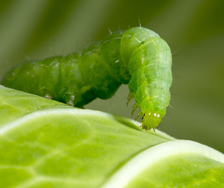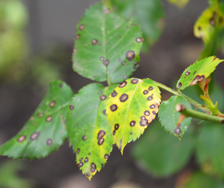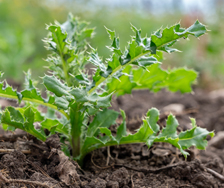Yates Account
Join now
Create a Yates account today!
Sign up to join the Yates Garden Club for monthly e-mails packed with seasonal inspiration, tips for success & exclusive promotions.
Plus if you’re a Garden Club member you can take part in the Yates Growing Community - a blog to share successes, get advice & win prizes in fun challenges along the way!

Forgot password
Enter the email address associated with your account, and we'll email you a new password.

Here are our tips for keeping your citrus trees in great condition.
During spring, citrus trees get pretty busy, producing fragrant white flowers and a fresh flush of new leaves. Caring for citrus in spring is important, as it plays a big role in the future health and productivity of the tree.
Fertilise
Feed your citrus with Yates Dynamic Lifter Organic Plant Food three times a year, in early spring, summer and again in autumn. When the tree starts to produce fruit (normally in its 3rd year), feed weekly with Yates Thrive Citrus Liquid Plant Food, or with Yates Thrive Citrus & Fruit Granular Plant Food every 8-12 weeks.
Weed and Mulch
Apply or renew mulch over the root system of the citrus tree. One thing that citrus trees really hate is having to fight with grass growing right up against their trunks. Grass is so greedy it will gobble up any nutrients it can get at.
Clear grass away from the base by hand, or carefully spray with Yates Zero Rapid 1-Hour Action Weedkiller Ready to Use. When all the weeds and grass have gone, give the roots a really good drink and then put a 10 centimetre or more thickness of organic mulch (old manure, pea straw or compost) over the entire root area. Make sure that the mulch doesn't contact the trunk, as this will encourage root and collar rot.

Prevent Root and Collar Rot
And speaking of rots, citrus roots rot away very readily when the soil is heavy or clayey, and citrus bark can decay and lift from almost any part of the tree (collar rot). To combat this, avoid planting in poorly drained areas and plant in pots or raised garden beds filled with Yates Premium Potting Mix. If pots aren't an option, improve your soil by incorporating organic matter, like Yates Dynamic Lifter Organic Plant Food and gypsum. Here are 5 Tips on Soil Improvement.
Control Insect Pests & Fungal Issues
A common question about citrus trees is how to control curled leaves. Unfortunately, once the leaves are twisted the damage is permanent (until the leaves naturally fall from the tree). Early treatment is the key!
The insect pests that often cause these deformed leaves are aphids. They are small sap sucking insects, which can be green, brown, grey or black, that typically congregate underneath vulnerable new citrus leaves and stems, depleting them of important sugars and nutrients. Aphid damage can ruin the look of a tree and aphids can also attract the disease sooty mould, which grows on the sugary honeydew that aphids excrete.
During the spring foliage flush, new growth needs to be protected from aphid damage by spraying the leaves with Yates Nature’s Way Organic Citrus, Vegie Ornamental Spray. Spray lightly, just to the point of run off, including undersides of the foliage, as soon as aphids appear. Respray each week while aphids are active.
Citrus trees are also attractive to a number of insect pests. Sap-sucking pests such as aphids, mealybugs and scale can be controlled with Yates Natures Way Organic Citrus, Vegie Ornamental Spray Ready to Use.
If your tree is under attack by the lemon tree borer, keep in mind the adult beetles are flying at night from mid-spring to autumn, on the lookout for trees to lay their eggs. The scent of freshly pruned citrus trees attracts them like a magnet, so it’s wise to restrict pruning to between April and August. A good solution for protecting fresh pruning cuts is Yates PruneTec, which seals off the wound and forms a physical barrier against larvae boring into the tree.
Citrus fruits are susceptible to citrus brown rot and verrucosis (citrus scab). Treat them with Yates Copper Oxychloride Fungicide.
Planting a new Citrus Tree
Spring is an ideal time to plant a new citrus tree. When planting citrus into containers, choose a well-drained pot that’s at least 40 cm in diameter and use a good quality potting mix like Yates Premium Potting Mix.
When planting a new citrus tree into the ground, mix some Yates Dynamic Lifter Organic Plant Food into the bottom of the planting hole. Yates Dynamic Lifter improves the quality of the soil and supplies the newly planted lemon with gentle, organic nutrients as it establishes.
Keep the new tree well-watered, particularly during its first summer. It’s also beneficial to apply a few centimetres of mulch over the soil (or potting mix) surface, which will help the root zone stay moist. Keep the mulch a few centimetres away from the trunk to allow good air flow and reduce the chance of collar rot disease.
Lemons, like other citrus, are heavy feeders and require lots of nutrients to support all the foliage, flowers and developing fruit. While trees are flowering, growing new foliage or carrying fruit, feed every week with Yates Thrive Citrus Liquid Plant Food. Dilute 1 – 2 capfuls in a 9 L watering can and apply around the root zone.

















Share
Share this article on social media